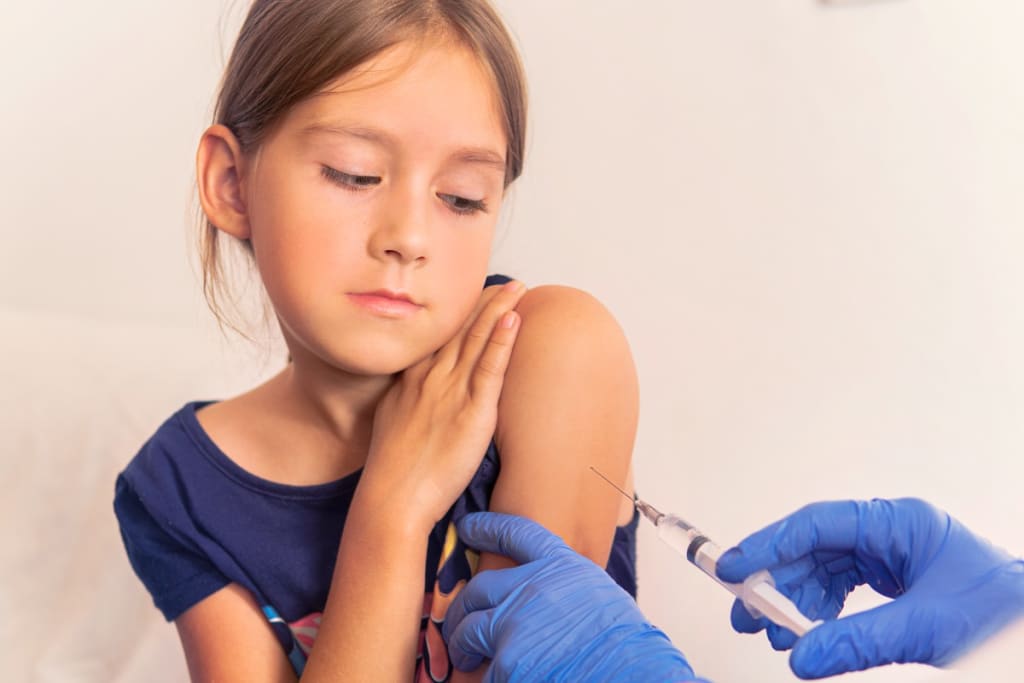
The UK Health Security Agency has released the most up to date statistics which illustrate that around a sixth of girls and a fifth of boys have not been fully vaccinated against the Human Papilloma Virus by the time they reach the age they take their GCSE’s. This leaves a large proportion of the young population at risk of developing Cervical Cancer or other related health conditions because they haven’t developed the adequate level of immunity they need in order to protect themselves.
There have been large numbers of clinics around the UK which have been helping the NHS keep it’s pledge to eliminate the disease by the year 2040. This will be an extremely ambitious and challenging promise which needs to be kept in order to protect the lives of young people around the country.
The statistics also highlight that while uptake of the vaccine has increased for both boys and girls in year 8, this community protection level is being put at risk due to decreasing uptake of the vaccine for children in year 9 or year 10. At this current time, the HPV vaccine is being offered to all 12-13 year olds in schools and community clinics. All parents are required to give their consent in order for their child to receive the vaccine which is normally given by NHS nurses.
Updates were made to the guidance offered to parents last year which helped to initiate the NHS’s new HPV vaccination programme. It is now recommended for most under 25’s to receive two doses of the vaccine instead of a singular dose. This would make it easier for young people and parents of 12-13 year olds to ensure that they are fully protected and can remain as healthy as possible.
The HPV vaccine helps protect against a range of cancers, including cervical, head and neck, anal and genital cancers, which can affect both boys and girls.
Last year, the NHS pledged to eliminate cervical cancer by 2040 for the first time ever, which could save thousands of lives every year in England, but this relies on as many young people as possible getting the lifesaving HPV vaccination and increasing cervical screening uptake.
Steve Russell, national director for vaccinations and screening for NHS England, said: “The successful HPV vaccination programme already helps save thousands of lives, but through increasing uptake in young people alongside boosting the numbers coming forward for cervical screening, the NHS in England hopes to eliminate cervical cancer by 2040.
“Today’s figures show that at the end of this academic year, over 500,000 girls and boys have been vaccinated with a dose of protection against the virus by the end of year 10, however, there are over 50,000 girls and over 70,000 boys in year 10 who were unvaccinated against HPV, so we’re urging parents of young people eligible for a vaccine to consent to their children getting their HPV vaccines from nurses when they visit schools.
“With just one dose now offering full protection to under 25s, it is easier than ever to ensure your child is fully protected – so please do check your child’s vaccination status and consent for them to get vaccinated if they aren’t up to date – vaccination saves lives.”
Women around the country are offered screening appointments to keep an eye on things and ensure they don’t develop any symptoms which can lead to a cancerous diagnosis. However some women do not take up this opportunity which can lead to many cases being missed and sometimes there can be avoidable fatalities.
The World Health Organisation considers cervical cancer to be eliminated as a public health problem when there is an incidence rate lower than four per 100,000 women.
Today’s stats show that in the academic year 2022/23, uptake for boys and girls in year 8 slightly increased when compared to 2021-22, but uptake has dropped in years 9 and 10 (year 9 girls went from 82.2% to 75.7%, year 10 girls went from 86.5% to 83.2%, year 9 boys went from 77.6% to 69.7% and year 10 boys went from 81.5% to 78.6%).
Dr Vanessa Saliba, Consultant Epidemiologist at the UK Health Security Agency, said:
“The HPV vaccination programme is one of the most successful in the world with millions of doses given since it started in 2008. It has dramatically lowered the rates of cervical cancer and harmful infections in both women and men – preventing many cancers and saving lives.
“All girls and boys in Year 8 are eligible for the HPV vaccine and evidence now shows that one dose gives excellent protection. We urge everyone who is eligible to take up this potentially lifesaving vaccine when offered.
“If you missed your HPV vaccine contact your school nurse, school immunisation team or GP practice to arrange an appointment – you can catch-up until your 25th birthday.”